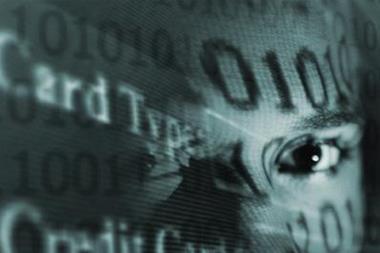The average direct financial loss to companies has risen to US$2.4m from US$1.7m during the period 2005-2007
Fraud remains a major threat to companies around the world. Nearly half of all organisations (same level as 2005) reported they were victims of some form of economic crime in the past two years, according to a survey.
The average direct financial loss to companies has risen nearly 40 % to US$2.4m from US$1.7m during the period 2005-2007.
The biennial survey, PricewaterhouseCoopers' 2007 Global Economic Crime Survey, revealed that of the 43 % that experienced economic crime in the last two years, the total direct losses exceeded US$4.2bn.
The losses arose from a variety of economic crimes, including asset misappropriation, accounting fraud, bribery and corruption, money laundering, and intellectual property infringement.
Of those reporting fraud, 88 % reported the fraud had damaged their brand and impacted staff morale, 84 % said it had harmed their relations with other companies, and increased the costs of dealing with regulators, and 69 % said it had negatively affected their share price.
Most companies are confident that their control measures will limit their exposure to fraud in the future. Only 11 % consider it likely they will be the victims of fraud in their country during the next two years.
Steven Skalak, global investigations and forensics leader, PricewaterhouseCoopers, commented: "It is simply impossible to eliminate economic crime. It's like fighting the mythical Hydra, cutting off one form of fraud merely allows another to grow. Controls alone are not enough. The answer lies in establishing a culture that supports control efforts and whistle-blowing with clear ethical guidelines. Companies need to build loyalty to the organisation give employees the confidence to do the right thing, and identify clear sanctions for those who commit fraud, regardless of their position in the company."
“Controls alone are not enough. The answer lies in establishing a culture that supports control efforts and whistle-blowing with clear ethical guidelines. Companies need to build loyalty to the organisation give employees the confidence to do the right thing, and identify clear sanctions for those who commit fraud, regardless of their position in the company.
Steven Skalak, global investigations and forensics leader, PricewaterhouseCoopers
The 2007 survey revealed a direct correlation between the size of a company and the prevalence of fraud. Among companies of 5,000 or more employees, 62 % reported being victims of fraud. That number dropped to 52 % for companies with 1001 to 5000 employees and to 32 % for small companies of less than 200 workers.
Theft was the most common type of fraud, reported by 30 % of those who said they had experienced economic crime.
Of those responsible for committing fraud, more than half were employed by the defrauded company, 26 % in senior management.
43 % of fraud was initially detected via a whistleblower hotline or other tip off—while the most effective control measure, internal audit, was the initial detection method in 19 % of reported cases.
The cost of fraud was significantly higher in emerging economies as in more developed countries. In total the emerging economies accounted for more than 45 % of the US$4.2bn in financial losses reported globally.
Skalak said: "Companies doing business in emerging economies need to understand the fraud risks they will face in different cultures and anticipate that they may be asked to participate in inappropriate schemes. Resisting corruption may be especially difficult in the face of market competition and internal pressure to deliver results. Companies need to understand how they will deal with fraud and corruption before they invest. Controls that work in developed economies may not be as effective in emerging markets."



















No comments yet